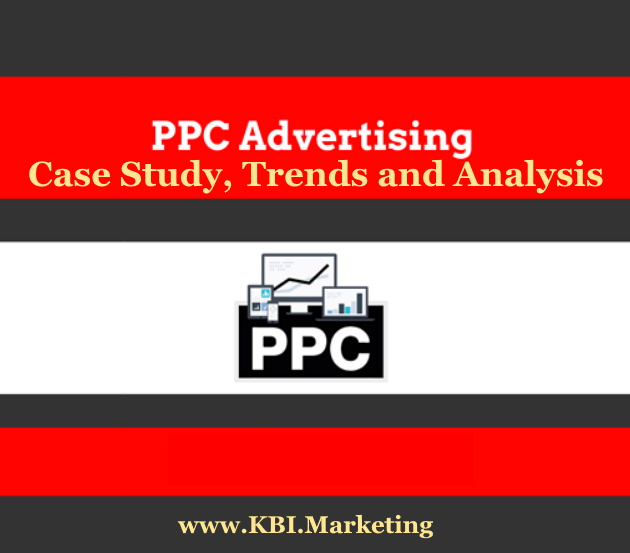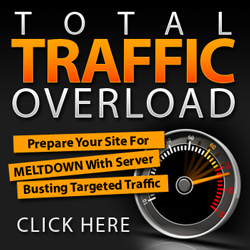Proven New PPC strategies & Tactics
Table of Contents
Pay per click advertising is one of the best marketing investments you can make in 2021 and beyond.
Search engine optimization and PPC are two different strategies marketers can use to bring in more traffic. Both strategies offer advantages and disadvantages. These statistics highlight some of the advantages of PPC advertisements over SEO.
A growing number of users rely on paid ads when shopping online, while staying on top of SERPs is more demanding than ever. As a result, keeping up with trends in a dynamic industry like paid advertising is a challenge of its own. A solid understanding of it, however, is far from impossible to obtain. From ROI and CTR to budget allocation and conversion rates, the paragraphs below elaborate on the latest PPC stats that shape the industry as we know it today.
When you use PPC search ads, you want to bring in the best ROI possible. These statistics indicate that PPC has the ability to provide a high ROI under the right circumstances.
- For every $1 spent on Google Adwords, businesses earn an average revenue of $2 (Google).
- Ad spending is increasing. According to SocialMediaToday, 72 percent of marketers are spending more on social ads in 2018 and 60 percent of marketers are spending more on text ads and mobile ads in 2018.
- 40 percent of brands want to increase their PPC budget, indicating that this is an effective and lucrative tool for marketers (SocialMediaToday).
- According to Formstack, PPC ads are one of the top three generators of on-page conversions.
- 65 percent of all clicks made by users who intend to make a purchase go to paid ads (Wordstream).
Google Ads and Facebook PPC Ads are the two largest advertisers on the Internet. Google currently holds 37.2% of the digital advertising market, whereas Facebook holds 19.6%.
While Google is still the top dog in advertising, Facebook has grabbed a huge market share over the past few years.
PPC Statistics (Editor’s Choice)
- In 2017, 7 million advertisers spent $10.1 billion on PPC ads.
- High commercial intent queries on Google AdWords get 65% of the clicks.
- Businesses typically earn $2 for every $1 spent on Google Ads.
- PPC visitors are 50% more likely to purchase something than organic visitors.
- 41% of clicks go to the top three paid ads in search results.
- 63% of online searches are Google searches.
- Google AdWords reaches 80% of global internet users.
- In 2019, the average number of Google searches is over 191 billion per month.
- Paid search can raise brand awareness by up to 80%.
- 62% of marketers plan to increase their PPC budgets in 2019.

The average cost per click in Google Ads across all industries is $2.69 for search and $0.63 for display.
And this is the average Cost Per Click (CPC) grouped by industry:
| Industry | Average CPC (Search) | Average CPC (GDN) |
|---|---|---|
| Advocacy | $1.43 | $0.62 |
| Auto | $2.46 | $0.58 |
| B2B | $3.33 | $0.79 |
| Consumer Services | $6.40 | $0.81 |
| Dating & Personals | $2.78 | $1.49 |
| E-Commerce | $1.16 | $0.45 |
| Education | $2.40 | $0.47 |
| Employment Services | $2.04 | $0.78 |
| Finance & Insurance | $3.44 | $0.86 |
| Health & Medical | $2.62 | $0.63 |
| Home Goods | $2.94 | $0.60 |
| Industrial Services | $2.56 | $0.54 |
| Legal | $6.75 | $0.72 |
| Real Estate | $2.37 | $0.75 |
| Technology | $3.80 | $0.51 |
| Travel & Hospitality | $1.53 | $0.44 |
How much does a typical click cost in Google Ads?
Once you know how the Google Ads process works and how to set your budget, it makes sense for your next question to be, “How much does a typical click cost?” Unsurprisingly, the answer is complicated. But we’re going to break it down.
The key influence on pricing in Google Ads: keywords
In some ways, you can think of PPC advertising roughly along the same lines as traditional print advertising; you’d expect to spend more on a glossy full-page ad in a national magazine than you would for a classified ad in a local newspaper. In digital marketing, however, the pricing isn’t influenced by the format of the ad, but rather the commercial intent of and competition for the keywords you’re bidding on. Some keywords are significantly more expensive to bid on than others, depending on how competitive the market is, and it’s important to realize this before launching a PPC campaign.
In digital marketing, pricing isn’t influenced by the format of the ads, but rather the commercial intent of and competition for the keywords they are bidding on.
In super-competitive markets like legal and accounting, clicks can get much pricier than the average of $1 to $2. Let’s take a look at some keyword benchmarks in Google Ads to give you an idea of how much a click can cost for your business.
What is the average CPC in Google Ads?
If you take the average CPCs across all different types of businesses and keywords in the US, the overall average CPC in Google Ads is between $1 and $2. That’s on the Search Network. On the Google Display network, clicks tend to be cheaper, averaging under $1.
However, in super-competitive markets, clicks can get much pricier. Let’s take a look at some of the most expensive keywords in Google Ads and Bing to give you an idea of how much a click can cost if you’ve got deep pockets.
What are most expensive keywords in Google Ads?
As Google owns the largest paid search platform, we’ll focus on Google Ads first.
Listed below are the most expensive keyword categories in Google Ads, and the average cost-per-click of each. It’s worth noting that these are keyword categories, not actual keywords themselves—in some cases, the CPCs of keywords within each category may be higher than the averages stated:
- Insurance – $54.91
- Loans – $44.28
- Mortgage – $47.12
- Attorney – $47.07
- Credit – $36.06
- Lawyer – $42.51
- Donate – $42.02
- Degree – $40.61
- Hosting – $31.91
- Claim – $45.51
- Conference call – $42.05
- Trading – $33.19
- Software – $35.29
- Recovery – $42.03
- Transfer – $29.86
- Gas/Electricity – $54.62
- Classes – $35.04
- Rehab – $33.59
- Treatment – $37.18
- Cord blood – $27.80
With careful management and attention to detail, PPC advertising has the ability to boost your business’ online profits faster than natural search campaign methods. However, in order for PPC advertising to reach its full potential, five key components must work together to make your pay per click marketing campaign a success.
Keyword Selection
Can you be more specific? It’s a question you must ask yourself as you consider keywords for your pay per click marketing campaign. By choosing the keywords most relevant to your business, you increase your chances of connecting with the users who are searching for the products or services promoted in your PPC advertising placement. Convenient online tools like Wordtracker® make it possible for you to assess a keyword’s popularity and level of competition before deciding if it is something you want or need to bid on.
Keyword Bidding
Once you’ve selected the keywords for your PPC advertising campaign, you must bid on them. In general, the higher the bid, the higher your PPC advertising will rank. Competition for keywords can be fierce, so you may want to start by bidding as high as your pay per click marketing budget will allow and make adjustments over time as you see results. Online tools like Overture® can provide estimates on the bid price of your chosen keywords.
Targeted Copy
Effective ad copy can be key in keeping your pay per click advertising budget on track. When your copy addresses a targeted audience, the result is likely to be a decrease in the quantity of clicks but an increase in the quality of clicks. This means that click costs will go down while conversions by more qualified visitors will go up. Another way to target qualified users: make sure your PPC ad specifies what action you want them to take when they reach your site – be it to buy a product, register for a seminar or download a file. Surprising the visitor with an unexpected request is likely to have a negative impact on your pay per click marketing results.
Landing Pages
Keywords and copy may lead a horse to water, but PPC advertising landing pages are designed to make it drink. When visitors arrive at a landing page that supports the specific content of your PPC advertisement, consumer confidence – in your product and in your brand — soars. Customized pay per click landing pages give customers what they need without the hassle of going through your home page. This enhanced user experience typically leads to increased sales conversion and return on investment for your pay per click marketing campaign.
Website Analysis
What happens after the click-through, when users arrive at your website or landing page? Only website analysis can answer that question. By using software that analyzes your PPC advertising visitors’ activity on your site, you can identify problem areas and resolve issues that may be causing you to lose pay per click conversions.
What is a good conversion rate for PPC?
One of the ways to determine how good your conversion rates are is to compare your business with other businesses from your industry. However, this can be a little tricky, as small companies cannot have the same conversion rates as large enterprises. So, the best thing to do is to keep the average industry conversion rates as a reference and focus on increasing your own. If you do this right, they should grow along with your business.
What is ROI in Google AdWords?
The simplest way to can calculate your ROI in AdWords campaigns is to compare the money you invested in ads to the money you earned from them. The formula for calculating ROI in Google Ads is: (Revenue – Cost of goods sold) / Cost of goods sold = ROI
Which is better – SEO or PPC?
If we took a look at SEO vs. PPC statistics, we would find that both of these strategies have facts and figures behind them that prove their efficiency. So, how do you decide on whether to opt for a PPC or SEO services? Look at the pros and cons of each of them.
On one hand, SEO takes time to show results, while PPC ads offer instant results. On the other hand, if you’re familiar with the best SEO practices and implementation techniques, this marketing strategy can be quite affordable as opposed to PPC advertising which depends on your budget.
Final thoughts…
They say “you get what you pay for” and with pay per click advertising, it’s never been more true. PPC advertising involves paying for placement on search engines, which is why it’s also commonly referred to as search engine marketing. Pay per click marketing involves paying for advertising placement on search engines, advertising networks and other websites. You only pay when a user clicks your PPC advertising, “landing” them on your web site. These clicks can be costly, and aren’t a guarantee of success – which is why conversions are the true success metric of pay per click marketing. Conversions occur when a user completes your desired action — by making a purchase, filling out a lead form or making a phone call, for example.
These PPC trends for 2020 highlighted above will help change the way businesses acquire new customers and reach more targeted, relevant audiences. Whilst expected in the new year, these trends are already happening, so now really is the time to take advantage, experiment and get ahead of your competition.
Digital advertising is constantly evolving, with new features and opportunities becoming available all the time. In this rapidly evolving age, it’s never been more important to make sure you keep an eye on new developments and research so that you can adapt your digital marketing strategy to get ahead of your competitors.
There is a real ROI to be made with PPC advertising, and if done right, it can mean profits for your businesses.
Use these statistics as motivation and audience to launch your successful PPC campaign ASAP!
KBI Marketing is ready to help with managing your PPC (pay-per-click) advertising campaigns. This includes Google Adwords, Facebook ads & post boosts, LinkedIn ads & sponsored updates, Yelp ads, and more.
We can also set up your campaigns so that you know:
- When you are getting a lead from your PPC campaigns
- Which campaign generated the lead
- Exactly which leads came from PPC
- Exactly how much money you are making (or losing) on your PPC advertising
Ready to Give PPC a Try for Your Business?
KBI Marketing specializes in PPC strategies that lead to clicks and results. Request a free marketing analysis from our team today.









